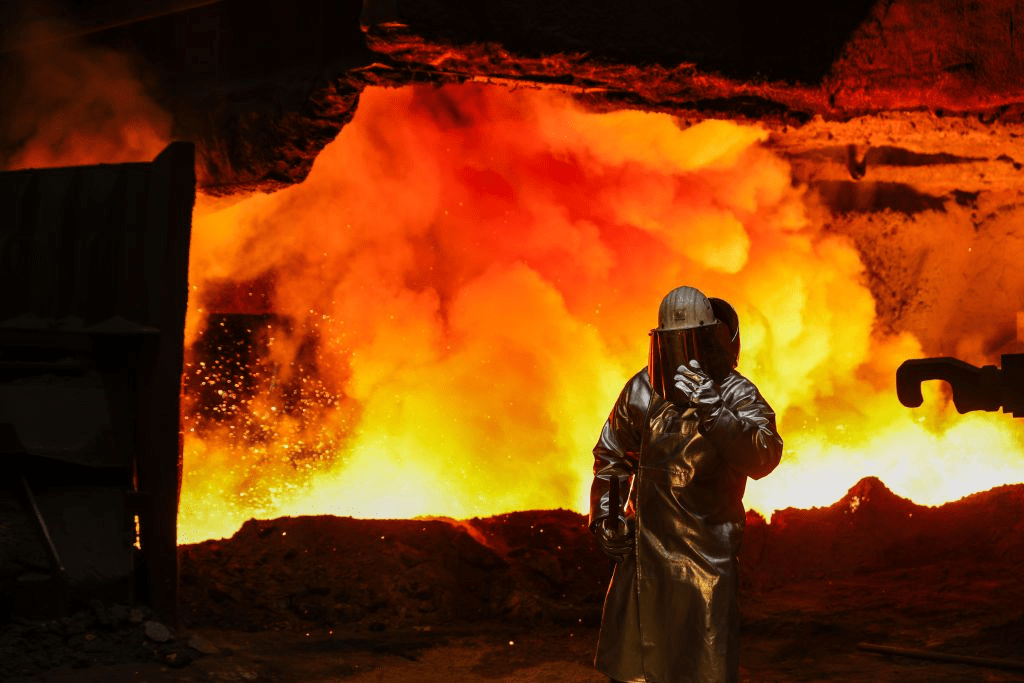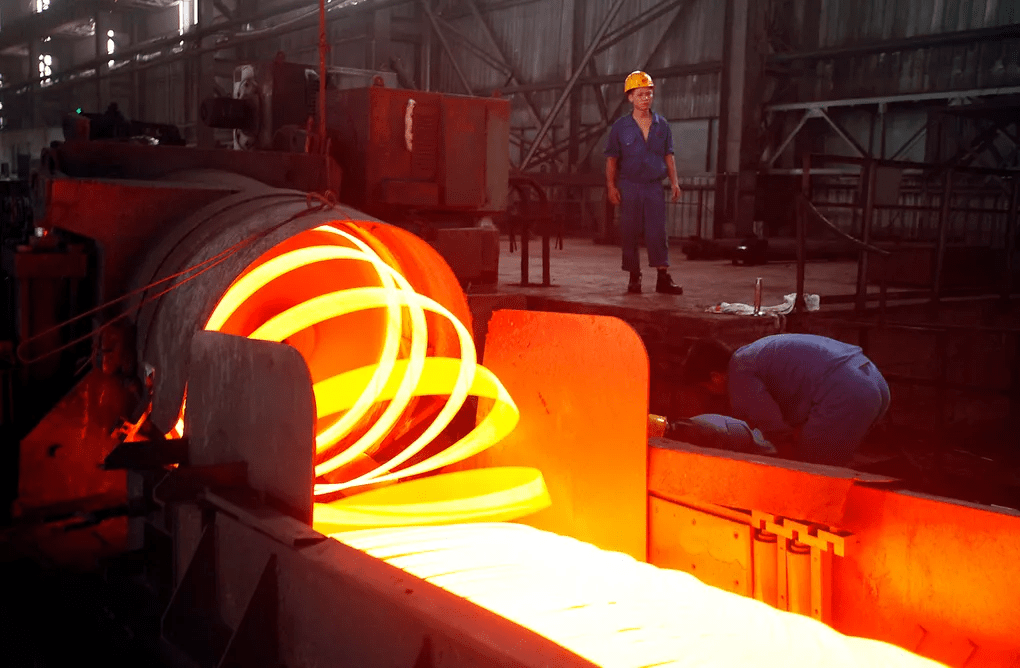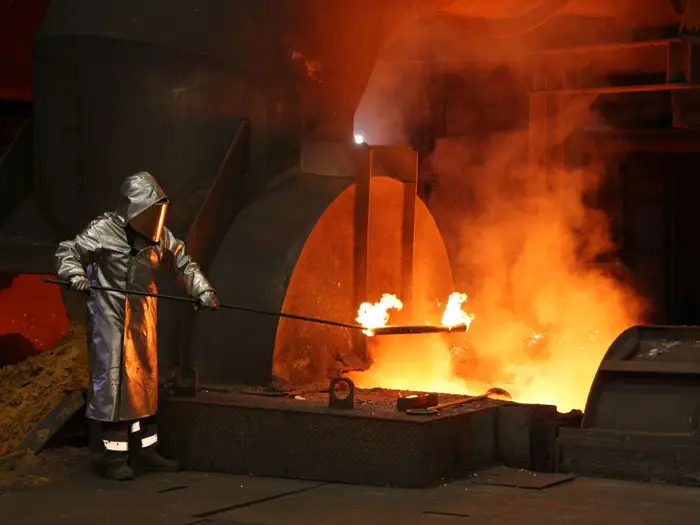With Trump’s tariffs approaching, would nations hurry to make deals? US President Donald Trump’s decision to impose a 25% tax on all steel and aluminum imports has sent some of the country’s key trading partners racing to reach an agreement.

According to data from the American Iron and Steel Institute, the United States is a big steel importer, importing roughly a quarter of the steel it consumes, with an even higher reliance on aluminum.
Its key suppliers are its neighbours Canada and Mexico, as well as certain Asian friends.
Trump has stated that his fresh tariffs will go into effect “without exceptions or exemptions” on March 12.
With just over a month until the tax goes into effect, here’s how some countries have responded.
Canada
Canada, as one of the top suppliers of both commodities to the United States, stands to lose significantly.
“Canada has extra reasons for irritation because they are the largest steel supplier and one of the largest aluminum suppliers to the US,” said Deborah Elms, a Hinrich Foundation trade analyst.
François-Philippe Champagne, Canada’s industry minister, criticized the ruling as “totally unjustified”.
In a post on X, he stated that Canadian steel is utilized in vital US industries including as defense, shipbuilding, and energy, making “North America more competitive and secure”.

He went on to say that Canada will “defend our industries as we have always done and will” and that the country’s response would be “clear and calibrated”.
Australia
Though Trump has stated that he will not entertain any exceptions, it appears that he may save this rule for Australia.
Australian Prime Minister Anthony Albanese stated that he spoke with Trump over the phone and that the US president was contemplating an exemption.
Trump previously described Albanese as “a very fine man” and stated that the United States has a trade surplus with Australia.
“The reason is that they purchase a large number of airplanes. “They’re quite far away, and they require a lot of planes,” Trump added. “We actually have a surplus, it’s one of the only countries which we do.”
Despite being the world’s largest supplier of iron ore, a critical raw ingredient for steelmaking, Australia’s steel exports are less important.
According to Albanese, Australian steel accounts for around 1% of US imports, despite being utilized by a major US military shipyard.
UK and Europe
The British government has not yet issued an official reaction to the increased US tariffs, but the trade association UK Steel has stated that the tariffs would be a “devastating blow” to their sector.

“The US is our second-largest export market, behind the EU. Rising protectionism internationally, notably in the United States, will limit our exports and damage approximately £400 million ($494 million) of the steel sector’s contribution to the UK’s balance of trade,” Gareth Stace, UK Steel’s director general, said in a statement.
“It is deeply disappointing if President Trump sees the need to target UK steel, given our relatively small production volumes compared to major steel nations,” he added, warning that other countries might “redirect” steel to the UK market to escape US tariffs.
On Tuesday, European Commission President Ursula von der Leyen replied, warning that “unjustified tariffs on the EU will not go unanswered”.
“They will elicit robust and appropriate responses. “The EU will act to protect its economic interests,” she stated. “I profoundly deplore the United States’ decision to put tariffs on European steel and aluminum exports. Tariffs are taxes, which are bad for businesses and much worse for consumers.
According to Eurometal, the United States was the second-largest market for European Union iron and steel exports.
During his first term, Trump placed tariffs on the United Kingdom and the European Union, but the Biden administration eventually lifted the limits.
India
Sandeep Poundrink, India’s steel secretary, has allegedly asserted that Trump’s tariffs will have little impact, citing the fact that India only exports a small proportion of its steel to the United States.

“”How much steel do we truly ship to the US?” said Poundrik during an industry gathering, according to a PTI report.
“Last year, we produced 145 million tonnes of steel, 95,000 of which were exported to the United States.” So what if you can’t export 95,000 tonnes out of 145 million tons?
However, not everyone shares this opinion.
Naveen Jindal, the head of the Indian Steel Association (ISA), has expressed “deep concern” that US limitations may drive steelmakers to dump their steel in the Indian market at lower rates.
These tax hikes are “expected to slash steel exports to the US by 85%, creating a massive surplus that will likely flood India which is one of the few major markets without trade restrictions” , commented Jindal.
South Korea
The American Iron and Steel Institute reports that South Korea is a major steel exporter to the United States.
Its steel is utilized by South Korean companies such as Hyundai, Kia, Samsung, and LG, which operate plants in the United States and Mexico.
South Korea’s Trade Minister, Cheong In-kyo, said Tuesday that the country will “actively consider” if there is possibility for negotiation with the United States, a day after the Industry Ministry convened an emergency conference with steelmakers.

In 2018, when Trump placed a 25% tax on all steel imports, Seoul received a waiver in return for a yearlong import quota.
What’s next?
It’s unknown what agreements will be done or waivers given during the next month, but Eswar Prasad, an international trade policy specialist at Cornell University, predicts that in the long term, US trading partners would attempt to diversify away from the US by selling their products overseas.
However, he claims that “Trump’s drastic actions have put the rest of the world on the back foot” since the US economy is stronger than most of its trade partners.
Another researcher believes that, while the US’ trade partners may seek appeasement in the near term, they may opt to strike back in the long run.
“While overtures may be made to work with the Trump team to avoid tariffs, our partners may conclude that tariffs are coming so fast and furious that negotiations are no longer a viable option,” said Wendy Cutler, Vice President of the Asia Society Policy Institute.


